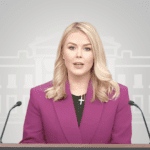Democracy and democratic leadership are often associated with the notion: “majority rules”. But does that always lead to the best decision? Context is key.
If you are a team leader and want your members’ opinion(s) about a subject, ask yourself this question before implementing the “democratic leadership” style or adopting the popular opinion: How knowledgeable is the team on the subject?
If 9 out of 10 members lack expertise and one is a subject-matter expert, relying solely on a majority vote could lead to uninformed decisions and disastrous outcomes.
Leadership isn’t always about inclusion or the majority, it’s about ensuring decisions are well-informed and effective. This principle extends beyond teams; it also applies to societies and elections.
When the majority of a population lacks access to reliable information or a deep understanding of the policies and thought processes of candidates, democracy itself can become dangerous. If votes are cast based on misinformation, emotional appeal, or populist rhetoric rather than informed decision-making, the results can lead to instability, poor governance, and long-term consequences for a whole nation, and sometimes the whole world.
A strong nation or populace must have the ability to critically assess not only their leaders but also their own knowledge and biases. In contrast, a leader must have the wisdom and clarity to make informed decisions that serve the greater good, regardless of popular opinion.
That’s why understanding when, where, and why to apply different leadership styles is key.
A strong leader knows when to seek consensus, when to delegate, and when to take decisive action; but when the rules of democracy are applied, it is the equally the responsibility of the voters to educate themselves, obtain accurate and real knowledge and expertise before blindly agreeing with their favorite team leader or – national leader.
When Democracy Fails: Why Knowledge Beats Popular Opinion

Dr. Rébar Jaff is a former UN official and senior executive specializing in humanitarian aid, crisis response, governance reform, and international security. He served as Secretary of the Disarmament Advisory Board under UN Secretary-General António Guterres.
Dr. Jaff holds a Bachelor of Arts in Political Studies and English from the University of Manitoba,
complemented by Master’s degrees in International Affairs, Conflict Resolution, and Civil Society Development
from The American University of Paris, as well as in Conflict Sociology and International Security from the
Institut catholique de Paris. In 2022, he attained his Doctorate, with a first-tier verdict, in Comparative Politics
and International Relations from the University of Ottawa, where he was also a recipient of the Full Graduate
Admission Scholarship.
Fluent in English, French, Kurdish, and Arabic, Dr. Jaff is a national of Canada and Iraq, and epitomizes the
multicultural and multilingual dimensions essential for effective diplomacy in today’s interconnected world.
Leave a Comment













